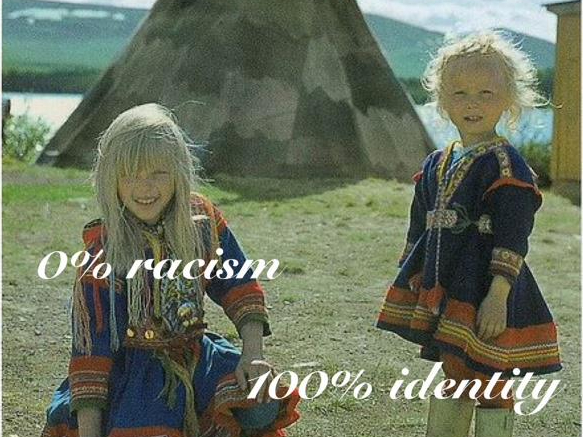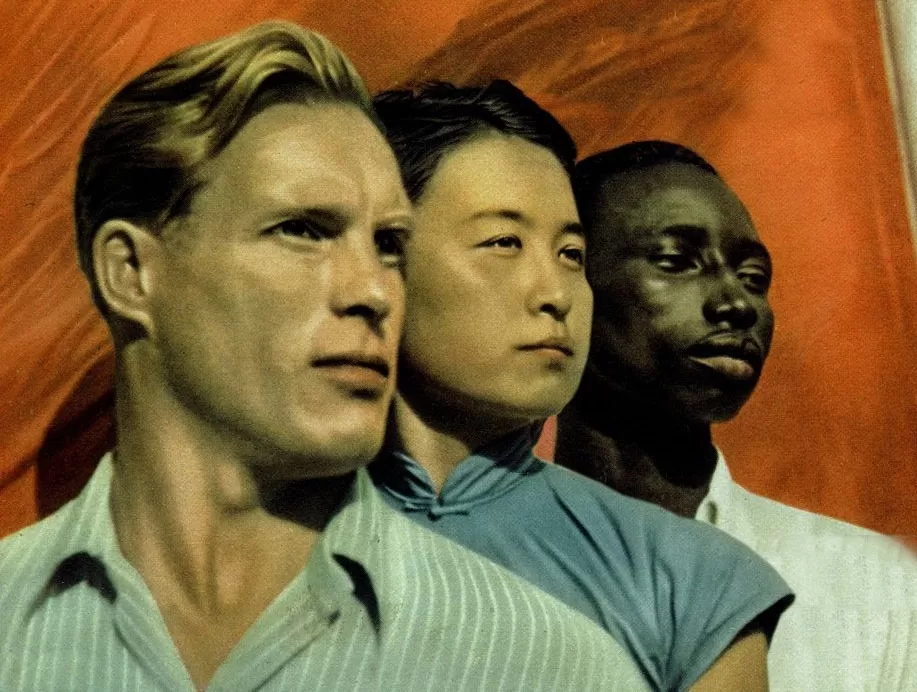In today’s interconnected global society, conversations about cultural and racial differences can, unfortunately, descend into hostility and polarization. Yet, at the heart of some philosophical perspectives lies a potent antidote to this divisiveness: ethnopluralism. Rooted in an understanding that cultural differences are not hierarchical but parallel, ethnopluralism promotes the idea that every culture has its unique value and intrinsic worth. With its origins in the writings of thinkers like Alain de Benoist and Henning Eichberg, ethnopluralism emerges not just as a theory but as a rallying call against the monocultural homogenization of globalism and as an affirmation of cultural identities.
Alain de Benoist, a prominent figure of the French New Right, has championed the idea of the “right to difference.” In his works, he frequently confronts the issue of racism, not by negating the existence of diverse ethnic and cultural identities, but by celebrating them. For de Benoist, the struggle is not about the superiority of one race over another, but about the authentic expression and survival of every unique cultural identity. By pushing back against universalism and its tendency to level down differences, de Benoist’s perspective on ethnopluralism posits that the defense of one’s own culture should never be at the expense of others.
Similarly, Henning Eichberg, a German sociologist and cultural critic, has expanded the horizons of this dialogue by asserting the primacy of the lived experience of different communities. Eichberg’s ethnopluralism is not merely an intellectual exercise; it is a call to recognize and cherish the “politics of identity” — an understanding that communities, like individuals, have their own narratives, experiences, and worldviews that deserve respect.
Yet, for many, the historical arena where ethnopluralism seems most counterintuitive is in the context of empires. Traditional narratives often paint empires as grand mechanisms of assimilation and dominance. However, when one delves deeper into the complex web of history, the inherently anti-racist nature of some empires becomes evident.
Take, for instance, the Roman Empire. It spanned vast territories, engulfing diverse ethnicities, cultures, and religions. Rather than forcefully homogenizing these various groups, the Roman Empire often allowed them a considerable degree of autonomy. While Latin and Roman customs became dominant in many regions, they coexisted with local traditions. Cities like Alexandria, Antioch, and Rome itself were melting pots of cultures. The Roman pantheon incorporated deities from different regions, and emperors hailed from different ethnic backgrounds, including North Africa, the Middle East, and the Balkans. The Roman concept of civitas — citizenship — was not constrained by ethnicity, but by allegiance to the empire and its laws. This model of integration without assimilation underscores the ethnopluralist ethos: diverse groups living together, not at the expense of their identities, but in a rich panorama of coexistence.
In a more modern context, the Soviet Union offers another intriguing perspective. Born out of the ashes of the Russian Empire, the USSR comprised numerous ethnicities and nationalities. Unlike its predecessor, the Soviet state explicitly adopted a policy of korenizatsiya (indigenization) during its early years, promoting the cultural and administrative development of non-Russian nationalities. While Russian remained the lingua franca, the state recognized over 100 minority languages, many of which flourished in literature, education, and administration. The Soviet emblem itself, with its sheaves of wheat encircling a red globe and a rising sun, was adorned with ribbons bearing the names of all Soviet republics, symbolizing unity in diversity.
Of course, the Soviet model was not without its flaws. Instances of Russification, deportations, and repressions counterbalance this narrative. However, it would be a reductionist mistake to ignore the genuinely ethnopluralist aspirations that the Soviet system often demonstrated.
In both the Roman and Soviet empires, we witness vast geopolitical entities that did not just tolerate diversity but often celebrated and integrated it. Their expansiveness was not merely territorial; it was cultural.
Thus, returning to our contemporary world, the lessons are clear. Ethnopluralism, as envisioned by thinkers like de Benoist and Eichberg, is not just a philosophical position but a historical reality. It serves as a reminder that celebrating diversity and advocating the preservation of unique cultural identities are not just acts of resistance against racism; they are affirmations of the very essence of mankind.
In conclusion, ethnopluralism challenges us to rethink our conceptions of race, culture, and identity. It beckons us towards a world where difference is not a source of division, but of strength; where empires, instead of being symbols of domination, can be models of multi-ethnic integration; and where the recognition of the “other” becomes not an act of tolerance but of celebration. It is an inherently anti-racist concept, urging us to build a world that resonates with the richness of all its diverse shades.










